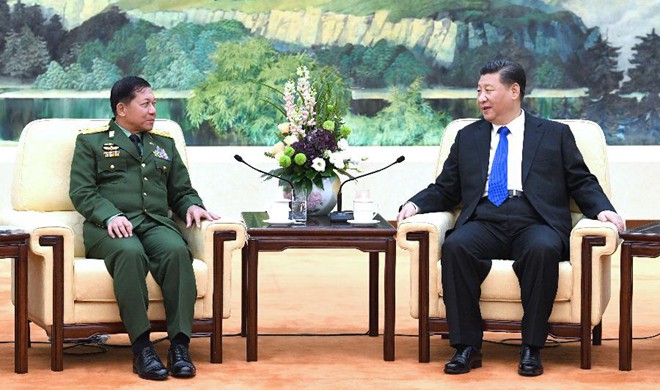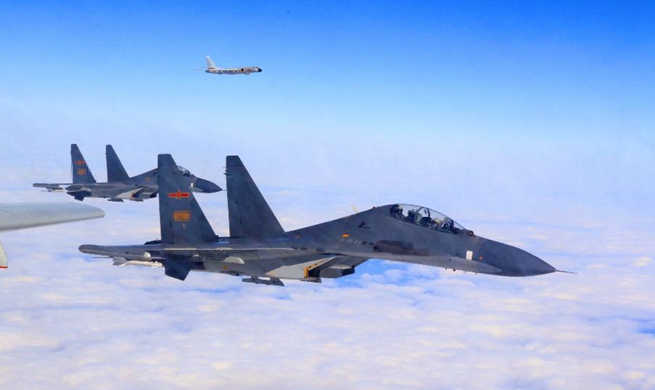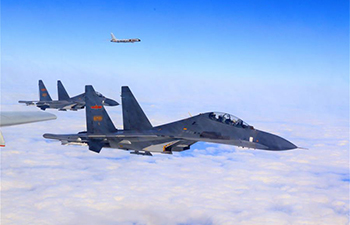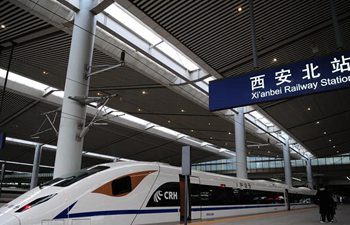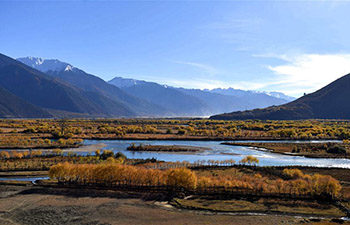BERLIN, Nov. 24 (Xinhua) -- German Social Democrat (SPD) leader Martin Schulz has signaled his party's willingness on Friday to hold talks with Christian Democratic Union (CDU) and Christian Social Union (CSU) over the formation of a new federal government in Germany.
Schulz said that he was hereby reacting to a "dramatic appeal" made by President Frank-Walter Steinmeier. While the SPD would not "refuse" talks with the CDU/CSU, however, any legislative cooperation "in whatever form" would ultimately still have to be decided in a vote of its party base.
The SPD leader further emphasized that there would be "no automatism in any direction" as a result of negotiations.
Following heavy SPD losses in September's federal elections, Schulz had repeatedly insisted that his party was not be available for another "grand coalition" with the CDU/SU and would instead return to the opposition benches.
Nevertheless, the SPD has come under heavy pressure to reverse this stance amid the collapse of "Jamaica" coalition talks. The Free Democratic Party (FDP) unilaterally broke off official negotiations with the CDU, CSU and Greens (Gruene) late on Sunday night, thrusting Germany into a moment of political crisis.
Without the FDP, the CDU, CSU and Greens do not have a sufficient majority to pass legislation in the federal parliament (Bundestag). Re-elections will consequently become necessary, unless the SPD can be persuaded to form a government with the CDU/CSU, or other parties agree to tolerate a CDU/CSU minority government.
Immediately after the failure of "Jamaica" negotiations, President Steinmeier launched urgent high-level talks with party representatives during which he reminded them of their political responsibility to voters.
Schulz met with Steinmeier on Thursday night for what the SPD leader subsequently described as a "good, very long and trusting conversation." Senior SPD functionaries then spent the remainder of the night debating "in whatever form or constellation" their party could make a contribution towards the formation of a new government.
Speaking to the press on Friday, Schulz stressed that all further steps would have to be discussed intensely within the SPD and its parliamentary faction.
Schulz also attacked the CSU, CSU Greens and FDP for having "failed catastrophically" in their coalition negotiations, placing Germany in a "complicated situation."
The SPD leader added that his party had never considered blocking the formation of a new government. "It was always clear: We will not be obstructive in the federal parliament, just for the sake of being obstructive," Schulz said.
Given Schulz earlier resistance to another "grand coalition", the reversal of his stance prompted speculation that SPD leader might resign. German Foreign Minister and former SPD leader Sigmar Gabriel denied the possibility of such an outcome on Friday.
Schulz was currently SPD leader "and would certainly remain so," Gabriel told the press.
Gabriel also advocated for all parties to "talk to each other" in the wake of failed "Jamaica" negotiations, as this was in the interest of Germany, as well as Europe.










